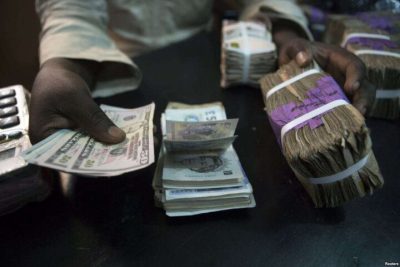CBN’s decision to discontinue FX sales to BDCs made naira worthless – ABCON
The Association of Bureaux De Change Operators of Nigeria (ABCON) says the decision of the Central Bank of Nigeria (CBN) to discontinue sales of foreign exchange (FX) to its members has made the naira valueless.
The association said this in a statement issued by its national executive council on Friday.
Eight months ago, the CBN stopped forex sales to Bureau De Change (BDC) operators, accusing them of being involved in illegal financial flows and money laundering in Nigeria.
Since then, the naira has continued to depreciate rapidly against the dollar — now exchanging N587/$1 at the parallel market.
ABCON also accused the CBN of criminalising its operations to justify its inhibitive policy summersault, urging its members to “ignore those unfortunate pronouncements.”
“It is on records that the CBN policy of stoppage of FX sales to BDCs did not only create higher demand pressure but also made the value of our national currency useless,” the statement reads.
“It is also a reality that majority of foreign exchange retail end-users can not meet their demands from the so-called professional banks and therefore laughable for the CBN to continue to rejoice over its assumed success.
“There is no gainsay the fact that the BDCs remain the most potent tool of CBN mandate of foreign exchange rate management.”
The association called on the CBN to consider its members in whatever mechanism of dollar supply to the end-users as it is done in other countries instead of a total blanket removal from the market.
“ABCON members are also aware that the restrictions against BDCs did not make things better. It only made things worse,” the statement adds.
“We, the excos, are not sleeping on our responsibility to ensure that our members’ business is sustained.
“We, therefore, call on all our members to continue to ignore the CBN’s unwanton labelling against us and continue to give us the necessary supports in ensuring normalcy.
“Meanwhile, we are continuing with our collaboration, lobbying, media campaign and stakeholders’ engagements.” (The Cable)


